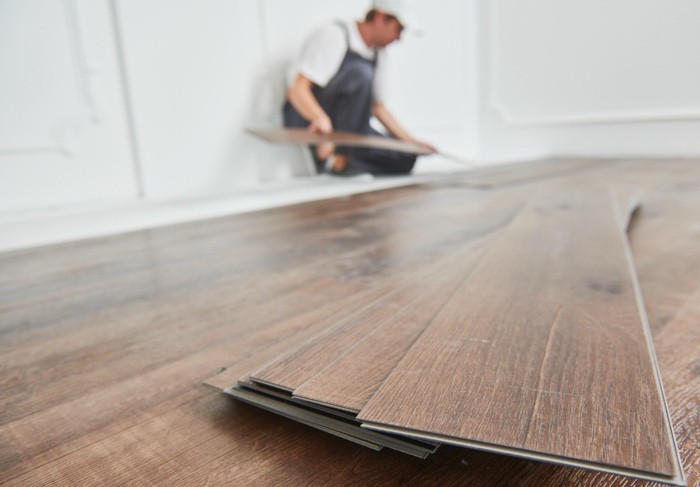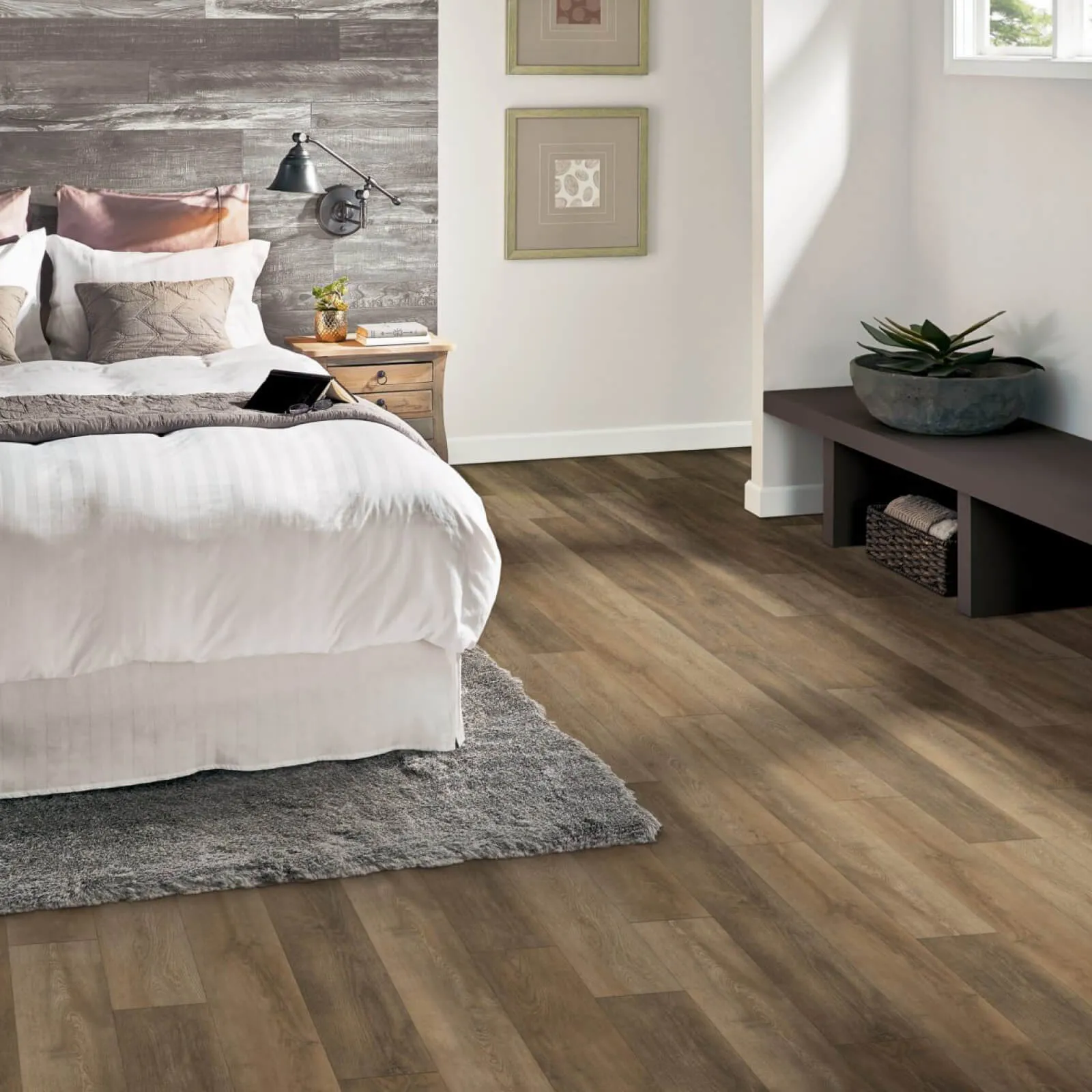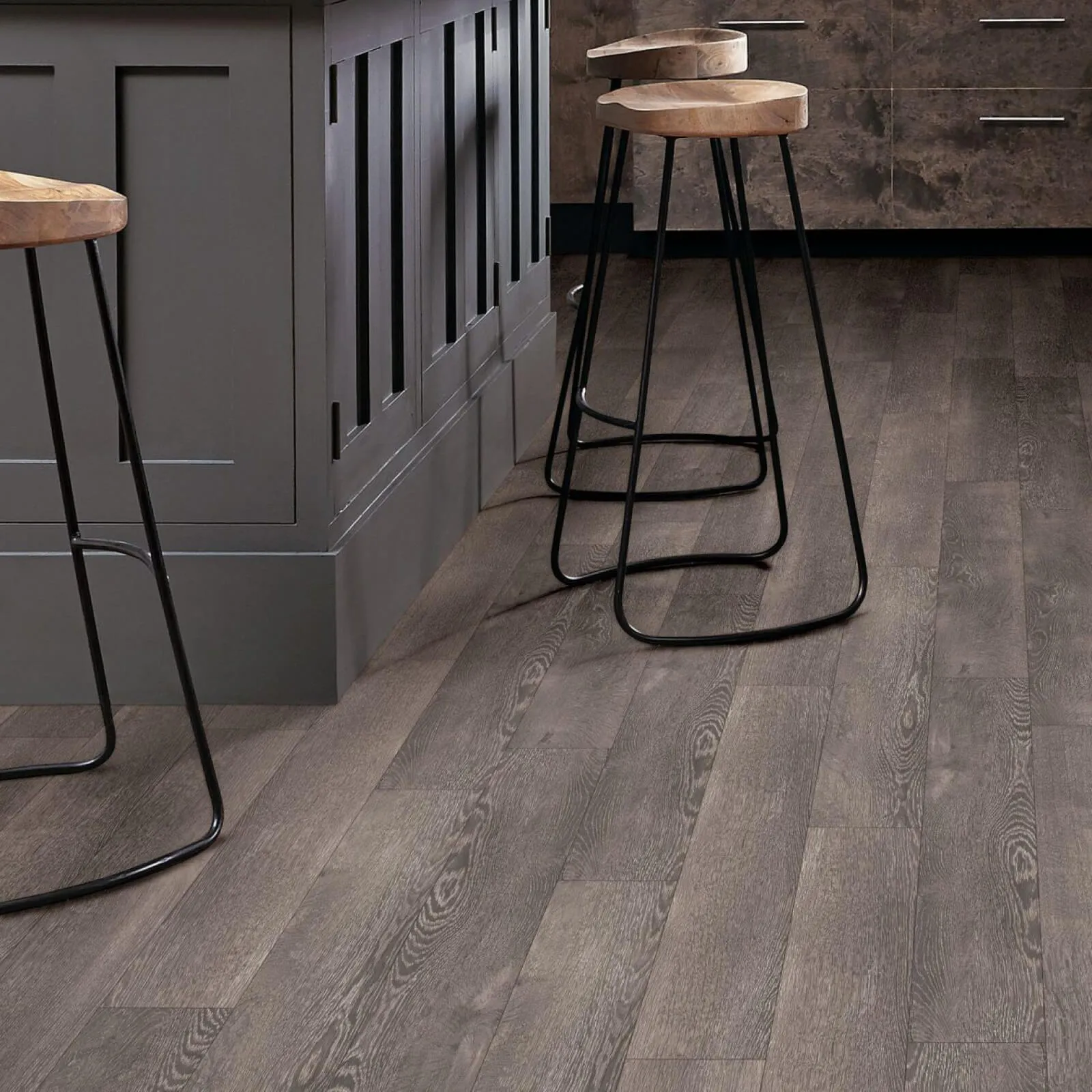WPC vs SPC Vinyl Core Construction
Vinyl flooring has revolutionized the flooring industry, offering a durable, water-resistant, and stylish alternative to traditional options like hardwood and tile. Within the realm of vinyl flooring, two core types of construction have emerged as leaders, each with its own unique benefits and characteristics: Wood Plastic Composite (WPC) and Stone Plastic Composite (SPC).
Understanding the differences between WPC vs. SPC vinyl flooring construction is crucial for Bay Area homeowners to make an informed decision that aligns with their specific needs, lifestyle, and the demands of their homes. At The Floor Store, we offer a wide selection of both WPC and SPC vinyl flooring options, and our knowledgeable team can help you determine which is the best fit for your project.

How is Vinyl Flooring Constructed?
Before diving into WPC vs. SPC, it’s helpful to understand the basic layers common to most quality vinyl flooring:
- Wear Layer: This is the top, transparent layer that protects the floor from scratches, stains, and wear. The thickness of the wear layer (measured in mils) is a key indicator of durability.
- Visual Layer: A high-resolution photographic image that provides the realistic look of wood, stone, or tile.
- Core Layer: This is the heart of the vinyl flooring and where WPC and SPC differ significantly.
- Attached Underlayment (Optional): Some vinyl flooring comes with a pre-attached underlayment for added comfort and sound absorption.

Wood Plastic Composite (WPC) Vinyl Flooring
The ideal applications for WPC Vinyl Flooring include living rooms, bedrooms, family rooms, and even kitchens and bathrooms where comfort and sound absorption are priorities. WPC vinyl flooring features a core layer made from a composite of wood flour, plastic, and foaming agents, and this core is known for being lightweight and comfortable underfoot:
Key Characteristics of WPC Vinyl Flooring:
- Comfort and Warmth: The foamed core provides a softer, more cushioned feel underfoot compared to SPC, making it more comfortable for standing for extended periods. It also offers better thermal insulation, making floors feel warmer.
- Sound Absorption: The thicker, foamed core of WPC provides excellent sound dampening properties, reducing noise transmission between rooms.
- Water Resistance: WPC is highly water-resistant, making it suitable for kitchens, bathrooms, and basements. However, while the core itself won’t absorb water, prolonged standing water on seams could potentially seep through if not properly installed.
- Thickness: WPC planks and tiles are typically thicker than SPC, which can help to bridge minor subfloor imperfections.
- Stability: While more stable than traditional vinyl sheet or tile, WPC may be slightly less rigid than SPC in extreme temperature fluctuations.

Stone Plastic Composite (SPC) Vinyl Flooring
The ideal applications for SPC Vinyl Flooring include kitchens, bathrooms, laundry rooms, entryways, and commercial spaces where durability and stability are paramount. SPC vinyl flooring features a core layer made from a solid composite of limestone powder, polyvinyl chloride, and stabilizers, and this core is incredibly dense and rigid:
Key Characteristics of SPC Vinyl Flooring:
- Unmatched Durability: The dense SPC core provides exceptional resistance to dents, scratches, and impacts, making it an excellent choice for high-traffic areas and commercial spaces.
- Rigidity and Stability: SPC is known for its superior dimensional stability, meaning it is less likely to expand or contract with changes in temperature and humidity compared to WPC. This makes it a great option for areas with large windows or fluctuating temperatures.
- Waterproof: Like WPC, SPC is 100% waterproof and can be confidently installed in any room of the house, including wet areas. Its rigid core also provides better resistance to indentations from heavy furniture.
- Thinner Profile: SPC planks and tiles are generally thinner than WPC, which can be advantageous when matching heights with existing flooring.
- Less Sound Absorption: Due to its dense core, SPC typically offers less sound absorption than WPC, although many SPC products come with a pre-attached underlayment to help mitigate this.

Choosing the Right Vinyl Core for Bay Area Homes
The decision between WPC and SPC vinyl flooring depends on your specific needs and priorities:
- Prioritize Comfort and Quiet: WPC offers a softer feel and better sound absorption.
- Need Maximum Durability and Stability: SPC is the tougher and more dimensionally stable option.
- Installation Over Imperfect Subfloors: WPC’s thicker profile may be more forgiving with minor subfloor irregularities.
- Budget: Generally, SPC may be slightly more budget-friendly than comparable WPC options.

SPC & WPC Luxury Vinyl Flooring at The Floor Store
At The Floor Store, our flooring experts can help you weigh these factors and explore our wide selection of high-quality WPC and SPC vinyl flooring to find the perfect foundation for your Bay Area home.
Contact or Visit The Floor Store at one of our 10 convenient locations throughout the Bay Area, including Richmond/Albany, CA, Concord, CA, Dublin, CA, Fairfield, CA, San Carlos, CA, San Francisco, CA, San Jose, CA, San Rafael, CA, Santa Rosa, CA, and Sunnyvale, CA.
